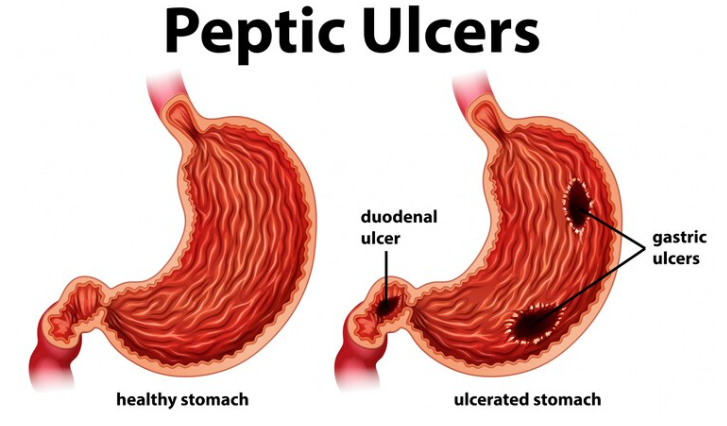Peptic Ulcers

Peptic ulcers are sores that develop on the inner lining of the stomach, upper small intestine, or esophagus. The primary cause is often infection with the bacterium Helicobacter pylori or the chronic use of nonsteroidal anti-inflammatory drugs (NSAIDs). Treatment for peptic ulcers aims to relieve symptoms, promote healing, and prevent complications.
1. Medications:
- Antibiotics: If H. pylori infection is identified, a combination of antibiotics, such as amoxicillin and clarithromycin, along with a proton pump inhibitor (PPI), is prescribed to eradicate the bacteria.
- Proton Pump Inhibitors (PPIs): These drugs reduce stomach acid production, promoting ulcer healing. Common PPIs include omeprazole and lansoprazole.
- Histamine-2 (H2) Blockers: Ranitidine and famotidine are examples of H2 blockers that can reduce stomach acid and aid in ulcer healing.
2. Acid Suppressors:
- Antacids: Over-the-counter antacids can provide quick relief by neutralizing stomach acid.
- Cytoprotective Agents: Medications like sucralfate may be used to form a protective coating over ulcers, promoting healing.
3. Lifestyle and Dietary Changes:
- Avoiding NSAIDs: If possible, discontinuing or reducing the use of NSAIDs is recommended.
- Dietary Modifications: Avoiding spicy foods, caffeine, and alcohol can help reduce irritation and promote healing.
4. Follow-up and Monitoring:
- Regular follow-up appointments are essential to monitor ulcer healing and adjust the treatment plan if necessary.
- Testing for H. pylori may be repeated to ensure successful eradication.
Peptic ulcer treatment is typically effective, and most ulcers heal within a few weeks with appropriate interventions. However, ongoing management may be required to prevent recurrence and address underlying factors contributing to ulcer development.

